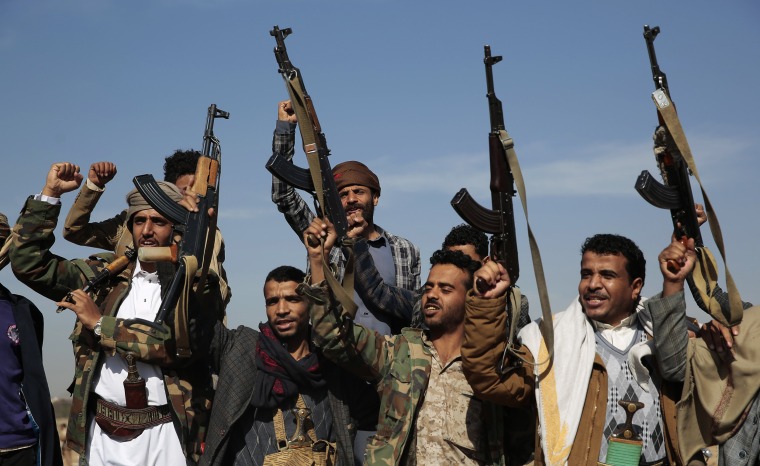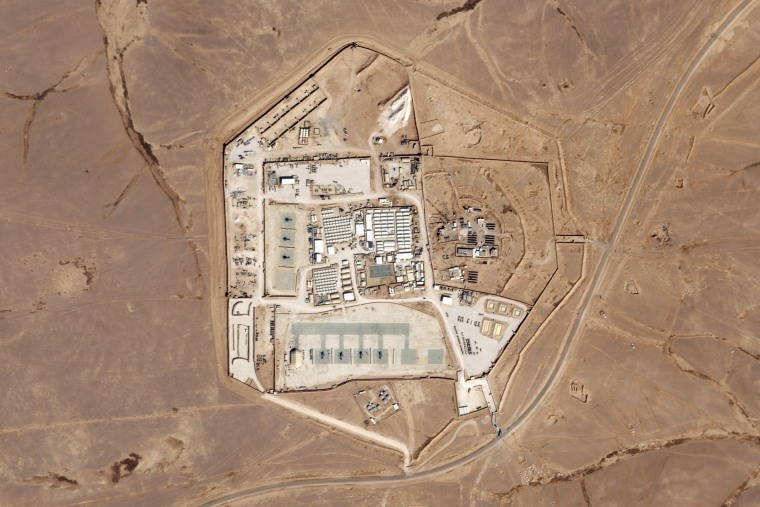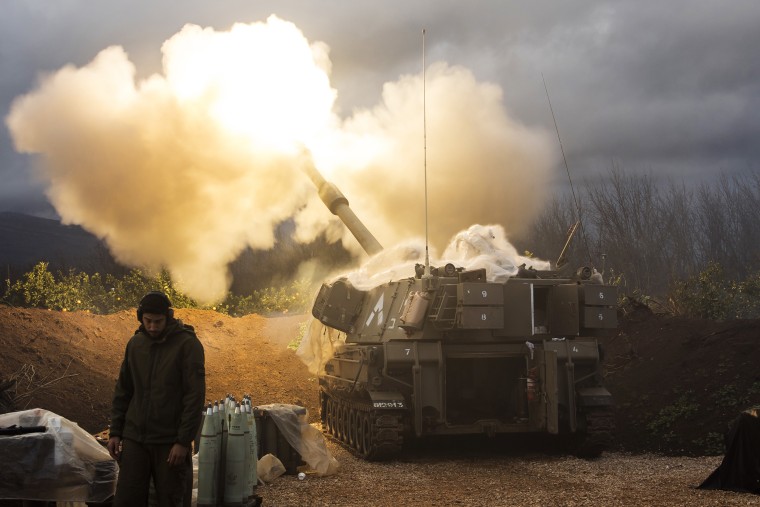Both the U.S. and Iran say they don’t want an all-out war. But after months of attacks and spiraling tensions in the Middle East — culminating in the killing of three American soldiers in a drone strike by Tehran-backed militants — former officials and analysts from the West warn the two countries may be sleepwalking toward conflict.
Sunday’s attack in Jordan was the first time American personnel have been killed in strikes from Iran’s proxies fired in response to Israel’s war in Gaza. President Joe Biden has vowed retaliation — but who the U.S. targets is as yet unclear. More hawkish voices are concerned that a response that’s too weak could fail to stop the mounting threat to American interests; other regional observers fear that a stronger retaliation could be the spark that sets off a wider war.
“The U.S. is in danger of slow-walking itself into a war with Iran,” said Thomas Shannon, former U.S. undersecretary of state for political affairs, the third-highest role in the State Department.
Though Iran itself may not want a war, experts say it has been able to use its militias to challenge American and Western interests in the region without getting directly involved.
While often keeping its language vague, Iran says it has no sway over these groups’ decision-making, and Western experts agree it’s unclear to what extent Tehran has direct control over these forces. Partly because of this ambiguity, the risk of miscalculation and escalation is huge, said Shannon, who has worked in a variety of senior roles under Presidents George W. Bush, Barack Obama and Donald Trump.
“We’re engaging with people who have every reason to escalate with us because our attacks against them elevate them in their world,” he said. These Iran proxies can cast themselves as “the leading edge of resistance to U.S. presence in the region, to Israel and leading the effort on behalf of Palestinians,” he added.
Iran’s proxies have long been active in the Middle East — what Tehran calls the “Axis of Resistance” against American and Western influence. But after Hamas’ Oct. 7 attacks, and Israel’s military campaign in Gaza, these Tehran-backed militias have unleashed a fresh wave of violence, which they say is a protest against Israel’s war and a sign of support for the Palestinian cause.
In Lebanon, the militant group Hezbollah has fired daily missiles into Israel, provoking an Israeli response and fears of a repeat of the Israel-Lebanon war of 2006. Yemen’s Houthis have launched rockets and drones toward southern Israel and targeted international shipping in the Red Sea, a key bottleneck for global maritime trade. Meanwhile, militants in Iraq and Syria have launched strikes against American bases across those two countries — and most recently Jordan.

Secretary of State Antony Blinken said Monday that it was “an incredibly volatile time in the Middle East.” The world, he suggested at a news conference, had “not seen a situation as dangerous as the one we’re facing now across the region since at least 1973, and arguably even before that” — referring to that year’s Arab-Israeli war, also known as the Yom Kippur War.
Iran denies orchestrating any of this, although Western governments and independent experts say Tehran is arming, training or funding all of these groups on some level.
The U.S. and its Western allies have hit back, striking targets they said were being used by Iran-linked militias in Syria and Iraq. They have also hit Yemen’s Houthis with airstrikes and lead a multinational task force with the aim of protecting merchant shipping routes in the Red Sea.
However, the drone attack in Jordan raises the stakes, with Biden facing pressure to increase the severity of the U.S. response. That’s led some regional watchers to wonder whether the militants intended their attack to be deadly at all, knowing it would provoke calls for such an escalation.
It was the third such attack on the base in six months, according to two Pentagon officials, the first two in 2023 being unsuccessful. There are two theories for how the drone evaded defenses at the base, Tower 22: It either flew in as a U.S. drone was also arriving and therefore the defense systems did not recognize it as a threat; or it came in at a very low altitude, the officials said.

“It’s not 100% clear that this was an intentional escalation on the part of Iran or even on the part of the militias,” said Frank Lowenstein, Obama’s former special envoy for Israeli-Palestinian negotiations. “They’ve launched dozens of these kinds of strikes, and they’ve never killed any American soldiers before.”
Even if it was intentional, it’s unclear how much “command and control” Iran is exerting over these militias, he said. “Is Tehran saying: we want to ramp up the pressure here? Or do these militias, some of whom are fairly obscure, even answer directly to Iran at all?”
In brief remarks Tuesday, Biden said he had decided on a response to the attacks, without giving details. The president said he held Iran responsible for the strike because it provided weapons to the militants, but he reiterated that he was not looking for a wider war.
Blinken said Monday the U.S. would “respond strongly” and “respond at a time and place of our choosing.” He said he wouldn’t give details as to not give the targets a heads-up, but said the response could be “multileveled, come in stages, and be sustained over time.”
Republican congressmen have been spearheading criticism of the president, suggesting that his limited strikes on Iranian militias — rather than Iran itself — has allowed America’s interests to be threatened and a wider war to become more likely.
“The Biden Administration can take out all the Iranian proxies they like, but it will not deter Iranian aggression,” Sen. Lindsey Graham, R-S.C., said in a statement. “I am calling on the Biden Administration to strike targets of significance inside Iran, not only as reprisal for the killing of our forces, but as deterrence against future aggression.”
Iran also sees the proxy drone and rocket attacks on U.S. troops as a way of forcing the withdrawal of American forces from Iraq, a long-sought goal for Tehran. The Shiite-dominated Iraqi government, which has friendly relations with its more powerful neighbor to the east, has publicly criticized the U.S. over recent airstrikes against Iranian-backed militias in Iraq.

As the Biden administration weighs its options, the White House may conclude that a strike against a target in Iraq carries just as much political fallout as a bombing raid inside Iran, said Michael Knights, a fellow at the Washington Institute for Near East Policy who closely follows Iran’s proxy network in the Middle East.
“It’s almost more sensitive to strike in Iraq than it is in Iran,” he said.
Biden’s options could include bombing targets in Iraq, Syria or Yemen, or he and his advisers may opt to go after Iranian naval ships in the Persian Gulf suspected of aiding Houthi missile and drone attacks at sea, experts said. But both Iran and the U.S. may be misreading each other, former Western officials and experts say.
Tehran may have wrongly assumed that the Biden administration would not be willing to strike directly at Iran, and Washington may have incorrectly calculated that Iran would pull back from a direct confrontation after a succession of limited U.S. airstrikes against Iranian-backed militia and Houthi forces in Yemen.
“They’re trying to deter us and not recognizing that, eventually, we won’t be deterred. And then, we’re doing the same with them,” Knights added. “Basically no one’s deterrence calculus is working.”






